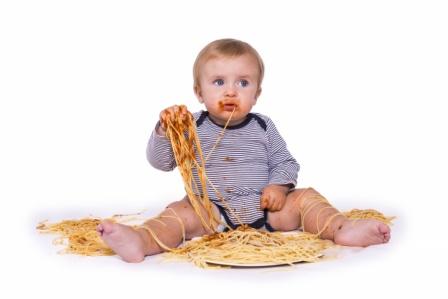One of the greatest pleasures of parenthood is marking your child’s development through phases of their feeding. But moving on to solids can also pose a concern for parents worried about food allergies.
Here are some tips compiled by the American Academy of Pediatrics, WebMD.com and babycenter.com on how to identify and prevent food allergies in your baby:
Introducing new foods
Start introducing new foods one at a time, so you can identify any adverse reactions. Wait about three to five days before adding a different item so you can gauge any symptoms of food allergies.
Allergic Reactions
Allergic reactions will appear quickly, within minutes to a few hours. Watch out for the following symptoms:
- Hives
- Flushed skin or rash
- Face, tongue or lip swelling
- Vomiting or diarrhoea
- Coughing or wheezing
- Difficulty breathing
- Loss of consciousness
But not all of the symptoms mean your child has a food allergy. Diarrhoea or vomiting, for instance, could point to food poisoning, while skin irritation can be caused by acids in foods like orange juice or tomato products.
Food allergies versus a food intolerance
The difference between a food allergy and a food intolerance is that while an allergy involves the immune system and can be fatal, an intolerance simply signals trouble digesting a particular food.
High allergenic foods
The most common allergenic foods include:
- Cow milk
- Eggs
- Peanuts
- Soy
- Wheat
- Nuts from trees (walnuts, pistachios, pecans, cashews)
- Fish (tuna, salmon and cod)
- Shellfish (shrimp or lobster)
There is some evidence that early exposure to these foods could be beneficial and prevent the onset of allergies in children. Some experts, however, still advise waiting until the child is older (anywhere from 10 months to the age of three) before introducing them to most common allergens like shellfish and peanuts.
Other guidelines
- Infants younger than 12 months should not be given cow’s milk as the proteins can irritate the stomach.
- Get immediate, emergency help if the baby is having trouble breathing, or develops swelling or severe vomiting and diarrhoea after eating.
- One of the best ways to prevent food allergies in babies is to breastfeed.
(AFP Relaxnews)
Latest posts by Contributor (see all)
- Preeclampsia: Signs and treatment - August 29, 2014
- How having a baby changes your marriage and life - August 29, 2014
- Child’s play could predict expectant parents’ capabilities - August 29, 2014
-
No Comments" href="https://all4baby.co.za/babies-6-12-months/health-hygiene-illness/1778/baby-led-weaning-blw/">

What is baby-led weaning (BLW)?
-
No Comments" href="https://all4baby.co.za/newborns-0-6-months/newborn-basics/1763/bamboo-better-baby-environment/">

Why Bamboo is better for your baby and the environment
-
No Comments" href="https://all4baby.co.za/babies-6-12-months/health-hygiene-illness/1761/foods-choose-baby/">

What foods should you choose for your baby?
-
No Comments" href="https://all4baby.co.za/toddlers-1-2-years/health-hygiene-illness-1-2-years/1755/real-life-working-toddlers-intolerance-certain-foods/">

Real life: Working through my toddler’s intolerance to certain foods


 Saving...
Saving...